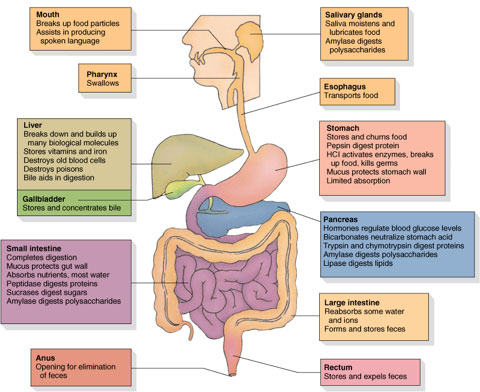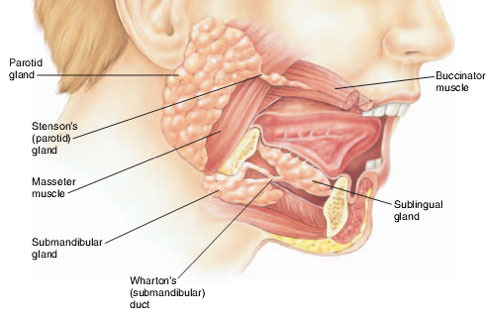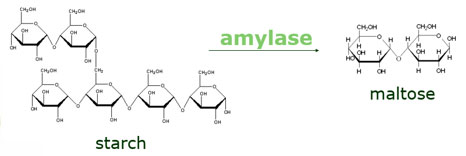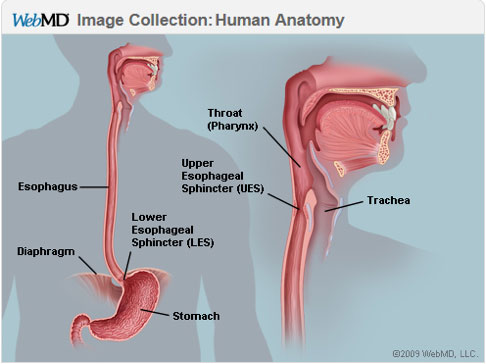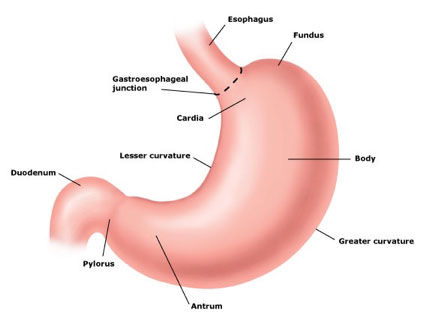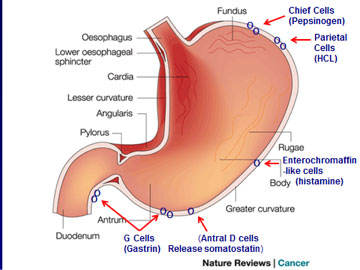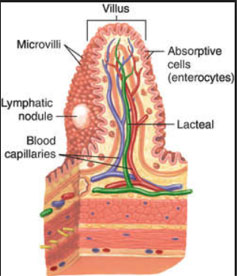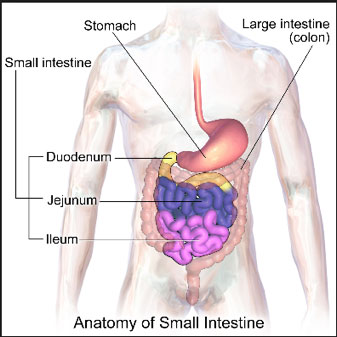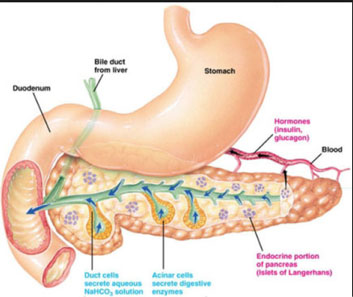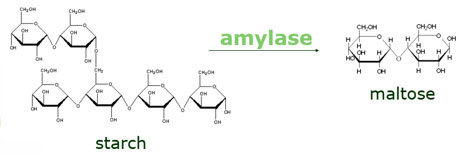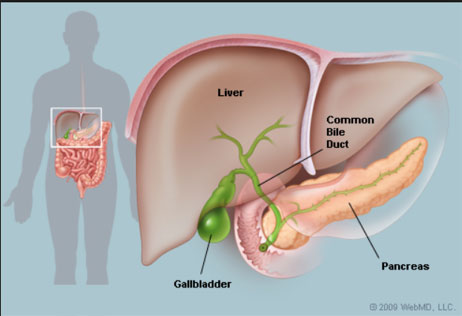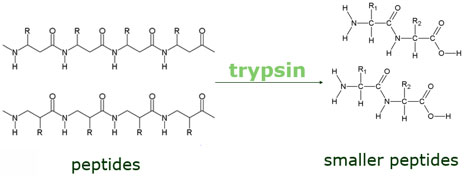Digestive Enzymes
Enzymes produced by the wall of the small intestine are not secreted like the other enzymes of the digestive tract. Instead, they remain attached to the plasma membrane of the cells lining the intestine, with their active sites exposed to the food in the intestine. With this arrangement, the substrates can be digested and then the products of digestion can immediately be absorbed into the body.
Humans can’t digest some macromolecules, such as cellulose because we don’t have the gene that produces the enzyme cellulase.
Control of Digestive Juice Secretion
Nerves and hormones regulate the secretion of digestive enzymes. Nerves carry signals to and from the brain and cause specific responses throughout the body. Hormones are chemical regulators that are secreted in one part of the body (by endocrine glands) and transported by the bloodstream to another part, where they cause a response.
The sight or smell of food causes the brain to send nerve impulses to the stomach to start secreting gastric juices. Much more gastric juice is secreted once food enters the stomach. Receptors in the stomach lining send impulses to the brain, which sends more impulses to the exocrine gland cells and endocrine glands in the stomach wall — and the hormone gastrin is released into the bloodstream. Gastrin travels to the upper part of the stomach, where it stimulates increased secretion of hydrochloric acid.
Large Intestines (Colon)
The colon has a large diameter, but a short length (5 feet).
Water is absorbed from undigested food, making the waste harder until it becomes solid. Waste stays in the colon for 10-12 hours.
The large intestine (or colon) is used to absorb water from the waste material left over and to produce vitamin K and some B vitamins using the helpful bacteria that live there.
All leftover waste is compacted and stored at the end of the large intestine, called the rectum.
When full, the anal sphincter loosens and the waste, called feces, passes out of the body through the anus.
The Big Picture
The endocrine, nervous, digestive and circulatory systems work together to control digestion. Before we eat, smelling food releases saliva in our mouth and gastrin in our stomach, which prepares the body for a snack.
A large meal activates receptors that churn the stomach and empty it faster. If a meal is high in fat, digestion is slowed, allowing time for the fat to be broken down. Thus, this is why we feel fuller after eating a high-fat meal.
The Microbiome
The following excerpt is from the book, Brain Maker, by David Perlmutter, M.D. I consider it a must-read.
“Right now, your body is colonized by a multitude of organism that outnumber your own cells by a factor of about ten. These roughly hundred trillion invisible creatures — microbes — cover your insides and outsides, thriving in your mouth, nose, ears, intestines, genitalia, and on every inch of your skin. If you could isolate them all, they would fill up a half-gallon container. Scientists have so far identified some 10,000 species of microbes, and because each microbe contains its own DNA, that translates to more than eight million genes. In other words, for every gene in your body, there are at least 360 microbial ones. Most of these organisms live within your digestive tract, and while they include fungi and viruses, it appears that the bacterial species that make their home inside you dominate and take center stage in supporting every conceivable aspect of your health. And you interact not only these organisms but also with their genetic material.
“It’s now undeniable that our intestinal organisms participate in a wide variety of physiologic actions, including immune system functioning, detoxification, inflammation, neurotransmitter and vitamin production, nutrient absorption, signal being hungry or full, and utilizing carbohydrates and fat. All of these processes factor mightily into whether or not we experience allergies, asthma, ADHD, cancer, diabetes or dementia. The microbiome affects our mood, libido, metabolism, immunity, and even our perception of the world and the clarity of our thoughts. It helps determine whether we are fat or thin, energetic or lethargic. Simply put, everything about our health — how we feel both emotionally and physically — hinges on the state of our microbiome. It is healthy and dominated by so-called friendly, beneficial bacteria? Or is it sick and overrun by bad bacteria?”


